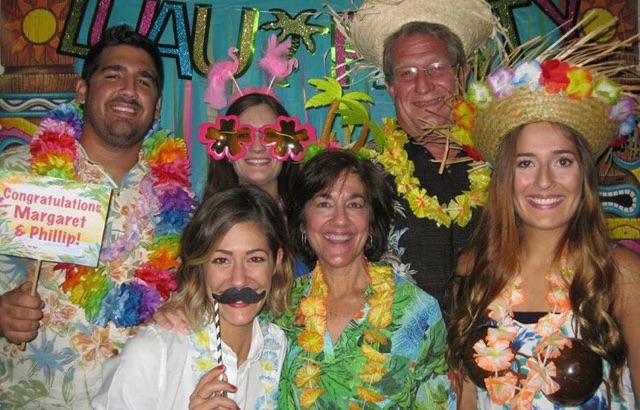Since I was a kid, I knew something was a little different. I made weird noises and nodded my head uncontrollably. It happened everywhere — at school, at home, in public, alone. I wasn’t doing any of this intentionally; I physically had no control over my “habits.” (That’s what my family called them for a while, perhaps to avoid the stigma of the T-word). The more I tried to stop, the worse the movements and noises got. I had no idea why this was happening or how long it would last, and it seemed like no one could help. It was a pretty terrifying experience, especially as a fifth grader.
My parents took me to every doctor and specialist in the area. Finally, when I was 10 years old, a doctor told us I had Tourette’s syndrome. I had no idea what that meant. None of it made any sense to me. Why is this happening? What is wrong with me? Will it go away? Will everyone make fun of me? Will I ever get married? Be able to have kids? All of these thoughts were speeding through my mind, and they still do sometimes.
I am not usually the first one to bring up my Tourette’s, but most people can tell I have it. This really wore on me for a long time. There was a constant flow of worry when I was out in public: Are they going to stare? Are they going to say something? That worrying led to depression and intense anxiety. I usually tried to put up a brave front and act like it didn’t bother me, but it did.
Now, years after my diagnosis, if I told you I went out in public every day and didn’t care if people were staring, I would be lying. I still struggle with anxiety and depression. I do care when people see the movements and hear the noises and wonder what’s wrong with me. I can’t help it. I understand just because people are staring doesn’t mean they’re judging. They may be curious, or confused, or ill informed, or might be staring at my hair or clothes or smile. But no matter their reason for looking, I’ve learned those people’s opinions of me don’t matter. The only people whose opinions I care about are the people who know and care about me. Every time I see a stranger staring, I care less and less.
I would have never accepted and dealt with my Tourette’s if it wasn’t for my family and friends. To me, they are some of the greatest people on this earth. They treat me how everyone wants to be treated — normal. I don’t want special treatment. I don’t want anyone to feel bad for me. I just want to be accepted for who I am — and that’s what the best people in my life have done for me.

When I was first diagnosed, I prayed to God every night to take away my Tourette’s. I begged Him to let me be in control of my body again. But once I realized my Tourette’s is not a disease and cannot be cured, my outlook changed. I’ll never get rid of my Tourette’s, but it’s not going to kill me. Each day with Tourette’s is different for me. Some days are fine, and others feel unbearable. It’s just a part of my DNA now. Once I realized that, I learned to accept and even embrace my Tourette’s. It’s as much a part of me as my eye or hair color. It’s also one of the many things that makes me the person I am today.
I try to think of my Tourette’s as God’s gift to me. Some might say it is my cross to bear, and I bear that cross with pride. I am not ashamed to say I have Tourette’s. I hope anyone who reads this who’s struggling with Tourette’s, or something similar, knows they don’t have to be ashamed either. We all probably have things we would never want people to know about us. But once you realize the thing you see as a “flaw” is the thing that makes you special, you might no longer need to hide it. All the parts of us, even the parts we wish we could change, combine to make us the people we are.
I’m not writing this for anyone to feel bad or pity me. I’m writing this to hopefully help someone who may be going through something similar. I felt so alone after I was diagnosed, like I was the only person in the world dealing with this. I want anyone going through something like this to know they are not alone, and it does get better. You may have Tourette’s, but Tourette’s doesn’t have you. It’s played a huge role in making me who I am, but it isn’t the entirety of who I am.
I will end with one of my favorite quotes I read on days when my Tourette’s feels like it’s taken over:
“Once there was a man who was afraid of his shadow
Then he met it
Now he glows in the dark.” – Ben Loory
It reminds me I don’t need to hide from the things about me that worry or scare me, my Tourette’s included. It’s not just good to be different, to me, it’s better to be different.
Ten years after my diagnosis I still don’t know why it happened. But I know nothing is “wrong” with me now. I don’t have to be afraid of my shadow. It’s what allows me to glow in the dark.
We want to hear your story. Become a Mighty contributor here.

